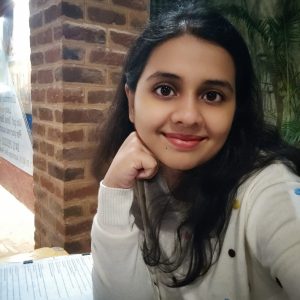
The Youngest at the Stove
-Dr. Srivalli Chilakamarri
She was barely thirteen, the youngest among them all, the last in line by age, yet the first to be conscripted into duty. At that tender age, her world should have been filled with pencils and notebooks, scribbles upon school desks, half-finished braids, and laughter that tumbled too loudly for narrow kitchens. She had only begun to explore cooking, a quiet curiosity that brought her fragile joy. It was play, not responsibility. Obligation was alien to her experience.
But that afternoon, when her mother was out of the station, her relatives arrived, and with them came the imperatives of tradition. They were rigorously orthodox, bound by caste, fixated on ritual purity. Restaurants were taboo; one could never ascertain whose hands had touched the food. Yet the hands of a small girl? Those were deemed appropriate instruments. The elders were spared. Her brotherremained unburdened. And her fatherstood mute. Not a word of protest. Not a hand extended in defence. He permitted hypocrisy, patriarchy and misogyny to operate unchecked on her, imposing the labour of adult obligation without so much as her consent.
She was thrust into the kitchen, trembling. A full meal for adults who refused to exert themselves. Her heart thrummed violently; her hands quivered. Joy was absent; only fear guided her movements; fear of failure, fear of derision, fear of disappointing not strangers but the very ones who ought to have shielded her. Every stir, every aroma that rose from the pots, carried the weight of expectation far beyond her years. Even in childhood, she recognised the injustice, though she lacked the vocabulary to name it.
When the meal was finally presented, there was no gratitude, no warmth, no acknowledgement of her exertion. Only critique: the rice was too soft, the salt wasinsufficient, and the spices were misaligned. Each remark landed like a stone upon her fragile frame, transmuting curiosity into culpability, innocence into duty. The men observed silently. Her father and her brother sat unmoved, unspoken. Not a single voice arose to affirm: She is merely a child. She tried. Respect her effort. Their silence reverberated more profoundly than any critique, instructing her with brutal clarity that a girl’s labour, at any age, is invisible, expected, and natural.
She grew, acutely observant. The pattern was undeniable. Adults sanctioned it. Her innate curiosity and talent were warped into servitude. The contrast was stark when she noticed none of her cousins had been compelled in such a manner. Their parents interceded, citing inability, shielding them from the expectations thrust upon her. The inequity burned within her, and in reflection, she discerned its lesson: to be born female can be a sentence, and talent, rather than liberation, may serve as a justification for exploitation.
Years later, she summoned the courage to confront her parents, seeking acknowledgement, recognition for the wound she had borne silently. But they dismissed her grievance. You had talent, they said. Talent as rationalisation and asan excuse. As though labelling an interest as talent could efface that memory of adult men acting paralysed only to eat the food cooked by a child, but conveniently, as patriarchy dictated, a girl child. She comprehended, with sharp clarity, that in their measure, her value was not in her well-being, but in her capacity to serve as per societal expectations, and nothing could sanctify their silence.
Now, as an adult, she perceives it with unflinching lucidity. That day had never been about food. It had been about dominion. About orthodoxy, pliant enough to exploit the youngestgirl, yet rigid in all other contexts. It was about a patriarchal world that watched and allowed injustice to flourish. That day, she did not merely cook a meal. She was cooked; simmered in expectation, boiled in criticism, chewed upon by judgment, swallowed by silence.
When the plates were cleared, all other appetites were sated. Except hers.She remained famishedfor fairness, for protection, for acknowledgement, for someone to speak aloud the truth that no one dared: She was just a child.
This story reveals the psychology of coerced responsibility, parental betrayal, systemic misogyny, and invalidation of pain. It maps how a single childhood incidentseemingly mundane to adultscan leave enduring scars when layered with patriarchal neglect. It is a narrative of unrecognised trauma, one that crystallises into clarity only in adulthood, yet continues to ache as unresolved grief.
*****

Dr. Srivalli Chilakamarri an ENT surgeon with a deep interest in head and neck oncosurgery, driven by a passion for healing and precision. Beyond the operating room, I find solace in writing—capturing thoughts, emotions, and reflections that often go unsaid. Balancing science with soul, I believe growth lies at the intersection of skill and introspection.

Sri Valli’s writing reveals the strange and distressing situation faced by a young girl in her childhood. Her words, sharp as blades, touch the readers’ hearts and make them deeply feel and understand the pain that the girl went through. Excellent work.
Beautifully narrated 👍👍
Memories always sweet. Bravo young lady. Enjoy life. It tastes like Ugadi special chutney.
More than the content presentation is really good. Srivalli wrote the story from the heart..may be by growing up in the environment she grew..she can visualise the feelings of a young girl born in an orthodax family easily.